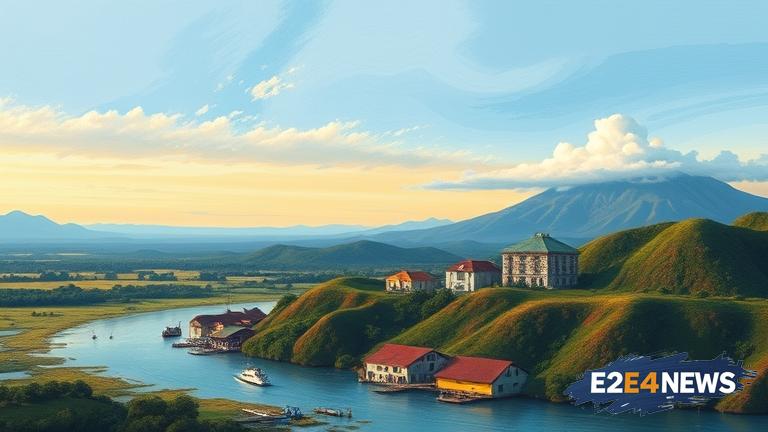Papua New Guinea, a country located in the Pacific Islands, has a diverse economy with a mix of traditional and modern sectors. The country has a rich natural resource base, including minerals, timber, and fish, which contributes significantly to its economy. However, Papua New Guinea also faces significant economic challenges, including a large trade deficit, high inflation, and a lack of economic diversification. The country’s economy is heavily reliant on the export of commodities, such as oil, gas, and minerals, which makes it vulnerable to fluctuations in global commodity prices. Despite these challenges, there are opportunities for growth in sectors like agriculture, tourism, and small and medium-sized enterprises. The government has implemented policies to promote economic development, including the establishment of special economic zones and the provision of incentives for foreign investment. However, more needs to be done to address the country’s economic challenges and to promote sustainable and inclusive economic growth. Papua New Guinea has a young and growing population, which presents both opportunities and challenges for the country’s economy. The country needs to invest in education and training to develop the skills of its workforce and to promote economic development. The government also needs to address the country’s infrastructure challenges, including the lack of reliable transportation and communication networks. Papua New Guinea has a unique cultural heritage, with over 800 languages spoken in the country, which presents opportunities for tourism development. The country’s natural environment is also an asset, with a rich biodiversity and a range of unique ecosystems. However, the country faces significant environmental challenges, including deforestation, pollution, and climate change. The government needs to balance the need for economic development with the need to protect the country’s environment and natural resources. Papua New Guinea is a member of the Pacific Islands Forum and the Asia-Pacific Economic Cooperation (APEC) forum, which provides opportunities for regional cooperation and economic integration. The country has also established trade agreements with other countries, including Australia and New Zealand, which provides access to new markets and investment opportunities. Despite the challenges, Papua New Guinea has the potential to become a significant player in the regional economy, with a growing economy and a unique cultural heritage. The country needs to continue to promote economic development, while also addressing its economic and environmental challenges. The government needs to work with the private sector, civil society, and international partners to promote sustainable and inclusive economic growth. Papua New Guinea’s economic landscape is complex and challenging, but with the right policies and investments, the country can achieve its development goals and become a prosperous and stable economy. The country’s economic development is critical to the well-being of its citizens, and the government needs to prioritize policies that promote economic growth, job creation, and poverty reduction. Papua New Guinea has the potential to become a model for sustainable economic development in the Pacific region, with a focus on environmental protection, social inclusion, and economic growth. The country’s unique cultural heritage and natural environment are assets that can be leveraged to promote economic development and tourism. However, the country needs to address its economic and environmental challenges, including corruption, lack of transparency, and inadequate infrastructure. The government needs to promote good governance, transparency, and accountability to attract foreign investment and promote economic development. Papua New Guinea’s economic future is uncertain, but with the right policies and investments, the country can achieve its development goals and become a significant player in the regional economy.





